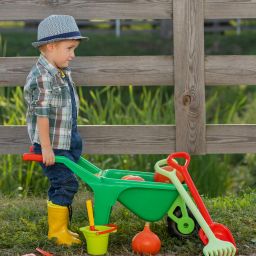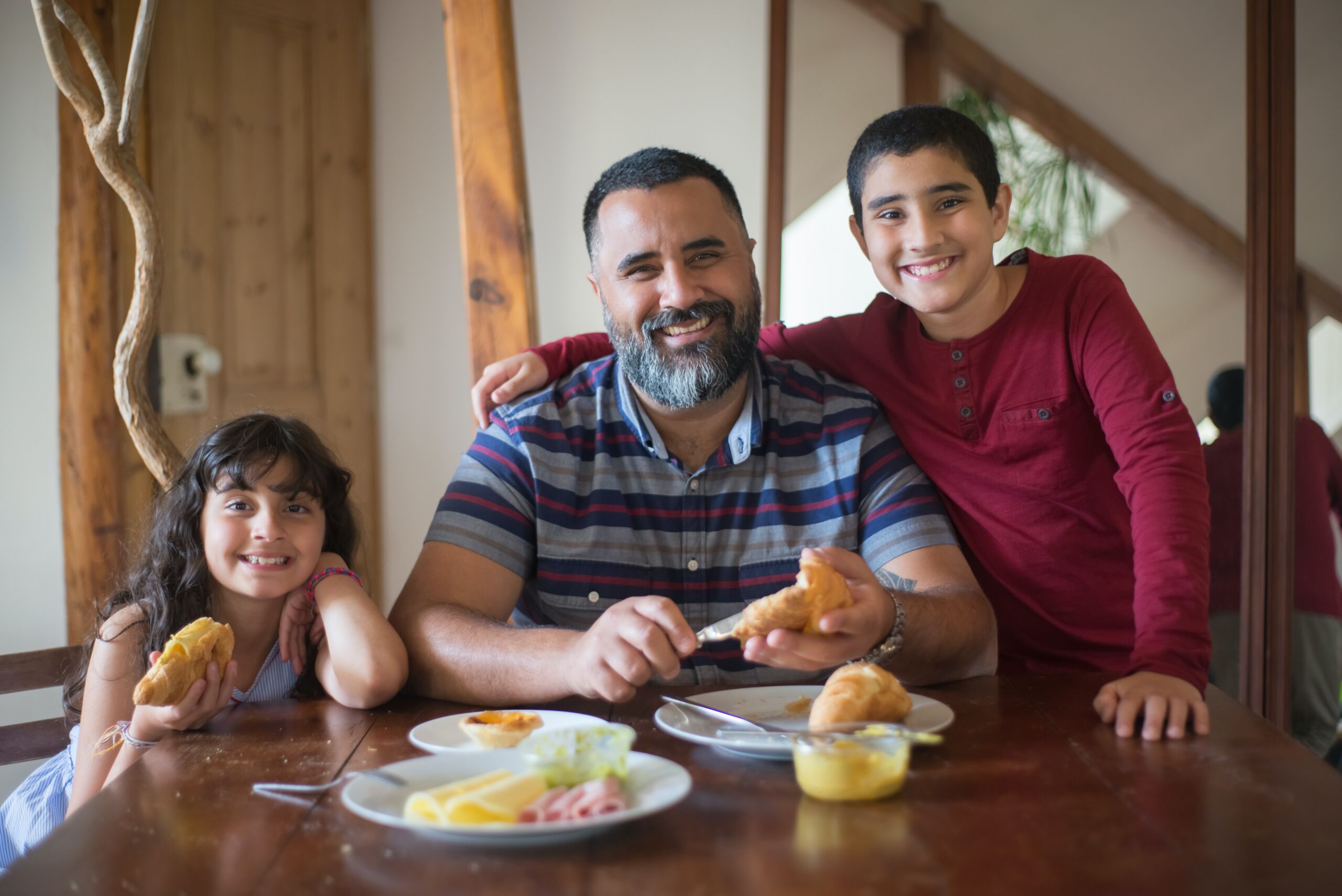
FH Summary: This post emphasizes the importance of eustress (positive stress) and a growth mindset in child development. It highlights that eustress, derived from challenges and hurdles, fuels resilience, perseverance and adaptability, all of which contribute to personal growth. The post also discusses the role of habits in fostering success and outlines how parents can invest in their children’s development by teaching them to harness the power of eustress and cultivate a growth mindset, with First Habits offering support and guidance throughout the process.
Welcome to another insightful installment from First Habits, your trusted partner on the journey of effective child development. Today, we delve into an often-overlooked yet essential facet of child development – the role of positive stress, or “eustress,” within the broader context of fostering a growth mindset. Please see our previous post about growth mindset and how important it is for your developing child here. Beyond that, we’ll explore how creating good habits can steer your child onto an upward spiral of personal growth and success.
Defining Eustress: More than Just a Silver Lining
Contrary to what you might think, not all stress is detrimental. Endocrinologist Hans Selye differentiated between two types of stress: distress, which we generally refer to when we talk about stress, and eustress, or “good stress.” This latter type, eustress, is a form of positive stress that keeps us motivated and excited about life.
For children, eustress can emerge from various sources – mastering a new skill, solving a tricky puzzle, participating in challenging sports activities or adapting to new environments. What’s crucial to understand here is that eustress is not just about tackling hurdles; it’s about recognizing them as stepping stones towards personal growth – a key component in developing a growth mindset in children. This kind of stress fuels the development of resilience, courage, perseverance and adaptability – traits that will significantly benefit your children as they navigate life’s ups and downs.
Jackson Brown Jr., a renowned American author, once said, “In the confrontation between the stream and the rock, the stream always wins – not through strength but by perseverance.” This quote encapsulates the power of perseverance and resilience, traits that can be nurtured in children through the strategic use of eustress and the cultivation of a growth mindset.
The Upward Spiral: Habits as the Building Blocks of Success
As parents, our role in our kids’ lives goes beyond catering to their basic needs. It’s about arming them with the right life tools – constructive habits that will guide them through life’s maze successfully.
Think of habits as the brick and mortar of life. When children consistently practice good habits, they lay the foundation for an upward spiral of self-growth and achievement. On the flip side, bad or unintentional habits can act as pitfalls and set the stage for a downward spiral.
Where does eustress come into play here, you ask? Eustress and a growth mindset are key players in habit formation. Difficult situations, stressors, or challenges can be perceived as triggers or cues to engage in positive habits. For instance, a challenging math problem could act as a prompt for the habit of systematic problem-solving. Similarly, an error or mistake can trigger the habit of reflective learning and subsequent improvement, both of which are intrinsic elements of brain development. So not all setbacks or challenges that your children face can be negative to their overall development. Also whether the end result of a challenge is “positive” or “negative,” there is always an opportunity for your child to grow.
Now put on your adult hat and think through this thought experiment. If all life was a blissful, non-stressful environment, what would that look like? How would you feel living such a life? At First Habits we’ve done this exercise and the short answer is that life would be amazing… for about a week and then we would find things to worry about or want a little more. Our ancestors would be amazed at the lives many of us lead today. We don’t have to worry about jungle or savannah predators. Most people in the U.S. have access to more food than is really necessary to meet our subsistence needs. If we could transport ancient humans to a modern grocery store they would be shocked at the plentiful stock of food. They might even question how they could ever be sad or depressed with a life so full of modern luxuries. But the reality is that modern humans are beset with issues, many of which are of our own making. If we told that ancient human that our boss was tough on us or of the frustration that a traffic jam can cause us, they might laugh at us and say “you have so much that I don’t have, what’s the point in getting worked up about a little bit of stress or wasted time?” And they would be right. But in many ways that misses the point. In one hundred years, society and technology and opportunity may have progressed a long way, but humans will still be trying to overcome and adapt to the hurdles that are placed before them. The acknowledgement of that key fact – that we as humans yearn for and need challenges and any “utopia” quickly becomes the norm – is very important to embrace.
Without something to struggle against and goal to achieve, human existence has little to no meaning. We don’t want to take anything away from people living in poverty or anyone who’s ever had a lot of misfortune that they’ve dealt with. But the reality is that we tend to return to a baseline of happiness no matter how “good” or “bad” our lives might seem to be. We’ve all heard stories about the person who is utterly depressed with the state of their life, but would seemingly have more material possessions and an easier life than 99% of all people alive today. We’ve also seen the person who is joyful and totally happy even through the toughest of times. Connecting with your child and providing them this key insight is a key part of growth mindset and something we will come back to time and time again on the First Habits journey.
The Power of Investment: Your Kids, Your Future
Investing in your child’s overall development is not an indulgence; it’s a necessity. It is an investment that will yield rich dividends in their future happiness, success, and overall well-being. This investment includes time, energy, patience, and sometimes even stress – but not all stress is bad, remember?
Eustress, when understood and managed effectively, can be a powerful tool in promoting your child’s growth and fostering a growth mindset. Your investment now, in teaching and modeling how to harness the power of these ideas can have a lifelong impact on your child.
Dr. Carol Dweck, a leading researcher in the field of motivation and the author of “Mindset: The New Psychology of Success,” points out that “In a growth mindset, challenges are exciting rather than threatening. So rather than thinking, oh, I’m going to reveal my weaknesses, you say, wow, here’s a chance to grow.” Think about how powerful that perspective would have been for you as a child. If we had developed a habitual way of thinking through new challenges and embracing “failure” as not something to be fearful of, but a new way to learn and a stepping stone to more achievement and growth. See our more in depth post on growth mindset here.
Fostering a Growth Mindset: The Role of Eustress
In the arena of child development, a growth mindset and eustress are two sides of the same coin. A child with a growth mindset perceives challenges not as towering obstacles but as opportunities to learn, grow, and develop new skills. This mindset allows children to view eustress as a positive force, a chance to push boundaries, step outside their comfort zones and acquire new capabilities.
In this context, eustress acts as a catalyst for nurturing resilience and adaptability, essential traits that contribute to the formation of a well-rounded individual. It’s about instilling the belief that their abilities can be developed, not something that’s fixed or set in stone – a core concept of the growth mindset.
First Habits: Your Ally in Cultivating a Growth Mindset
At First Habits, we wholeheartedly believe that parents are the primary educators and role models in a child’s life. We are committed to providing you with research-based insights and practical strategies for nurturing good habits and a growth mindset in your children. With First Habits as your partner, you’re never alone on your parenting journey.
As part of our commitment to your child’s development, we invite you to visit the First Habits website and sign up for our enlightening weekly newsletter. Our newsletter is filled with invaluable information on the most crucial habits to instill in your children and scientifically-proven techniques for implementing these habits effectively.
Curious about examples of how to distinguish positive Eustress from more destructive types of stress in daily life? Check out the below table:
| Distress | Eustress |
| Feeling overwhelmed with too much homework | Feeling motivated to study for a competition |
| Anxiety over a medical procedure | Excitement about a school trip |
| Constant worry about failing a class | A sense of accomplishment after solving a difficult math problem |
| Stress from a traumatic event, such as a death in the family | Nervousness before a performance that improves concentration and output |
| Chronic stress due to financial instability | Healthy competition in sports leading to improved physical health |
| Constant fear of being bullied at school | The joy of making a new friend, even though it initially felt challenging |
| Stress caused by a messy, disorganized home | A feeling of accomplishment after cleaning and organizing a room |
The Last Word: Embracing Eustress and the Growth Mindset
In the grand scheme of child development, cultivating these skills are vital. When coupled with consistent, positive habits, they set your child on an upward spiral of growth, preparing them for a future of success and adaptability.
As parents, we possess the power to guide our children in transforming stress into strength and challenges into opportunities for growth. So, let’s embrace the power of eustress, instill a growth mindset, and ignite an upward spiral of success in our children’s lives. With First Habits at your side, we can make this happen.
In conclusion, remember that not all stress is harmful. The right kind of stress – eustress – can be a game changer in your child’s development. Embrace it, guide your child through it, and watch as they blossom. With First Habits, you have a trusted companion on this journey, helping you every step of the way to nurture a resilient, adaptable, and successful individual.







